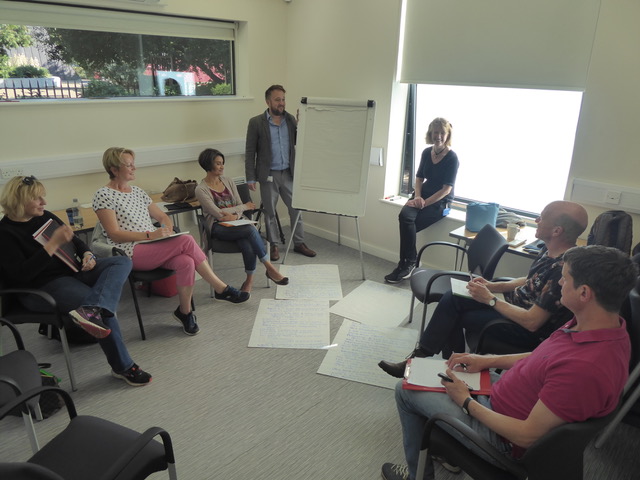
Parents
What causes stammering?
Are you a parent wanting to find out more about why your child stammers? You can find some key points from up-to-date research here and if you come to the MPC for an assessment you will have time to talk this through more with a therapist. Our crucial message for parents is: your child is not stammering because of anything you have or haven't done - it's not your fault! Make sure you read about our assessment clinic as well.
Genetics
- Stammering tends to run in families. It is influenced by, but not completely explained by, genetics. We know this because of twin studies with identical twins where one stammers and one does not.
- Other factors, both within the child themselves, and within their environment can have an influence.
- There are likely to be several genes involved rather than one single gene.
Differences in brain development
- Stammering arises because the complex neural pathways involved in speaking develop slightly differently.
- Scientists have found subtle differences in the way that the parts of the brain involved in speaking interact and also some subtle structural differences.
- These differences are so small that it is only possible to find them by looking at data from groups of individuals who stammer.
Language skills

- Stammering tends to start when young children are developing their language skills rapidly (between 2 and a half and 5 years of age) so there is a link between the two.
- This means that there is an increase in linguistic and motor planning ‘demands’ associated with speaking at this time.
- The relationship between linguistic and motor capacity, and other aspects of the young child’s development, can help to explain why stammering arises.
- This is particularly relevant for children who have delayed language development or other speech and language difficulties, or who have very advanced language skills.
- In general, children stammer more when language or motor planning demands are higher (at the beginning of sentences or phrases, when saying something longer and more complex).
- Being bilingual, or multi-lingual, does not cause stammering.
Speech motor skills
- Adults who stammer have slightly less efficient speech motor skills and need a little more time to make the movements involved in speaking.
- Researchers are looking at whether this is the same in children who stammer and also whether children who stammer have less stable speech motor patterns than children who do not stammer.
- When children who stammer speak quickly (because that is natural for them to do so, because they are trying to keep up, or because they are saying something long and complex) this may put too much ‘load’ on their speech motor capacity, especially when they are young.
Thoughts, emotions and temperament

- Stammering does not develop because a child is anxious or shy – although if a child has a stammer then they may stammer more if they are feeling anxious and they may become less confident about speaking. This arises for some children because of their experience of stammering rather than stammering happening because they are anxious or not confident.
- Research into broader aspects of temperament suggests that some children who stammer experience emotions relatively intensely and find it harder to regulate their emotions. This is another area that is being investigated by researchers at the moment.
Do you want to know how to help your child who stammers?

Parents
THE MICHAEL PALIN CENTER HELPLINE
Sometimes you just need someone to talk to


HELPLINE
Sometimes you just need someone to talk to
Our Helpline, 020 3316 8100, is open during office hours (9am-5pm) and voicemail messages can be left when the office is closed.
“I think other children should come here because it’s a really nice place and they could help you.”
Become a Friend
Receive emails with news and information about the Centre's work, events, and fundraising.
Sign up